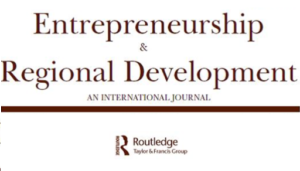Episode 129 – Pauline Brunner – Exploring the construction of social capital within the student entrepreneurship sub-ecosystem
The aim of this article is to show how student entrepreneurs construct their social capital within the sub-ecosystem of student entrepreneurship. We conducted a single case study on the professional network of a cohort of students participating in an entrepreneurship programme in the city of Strasbourg in France. Analysis of their professional networks for their…
Read More
